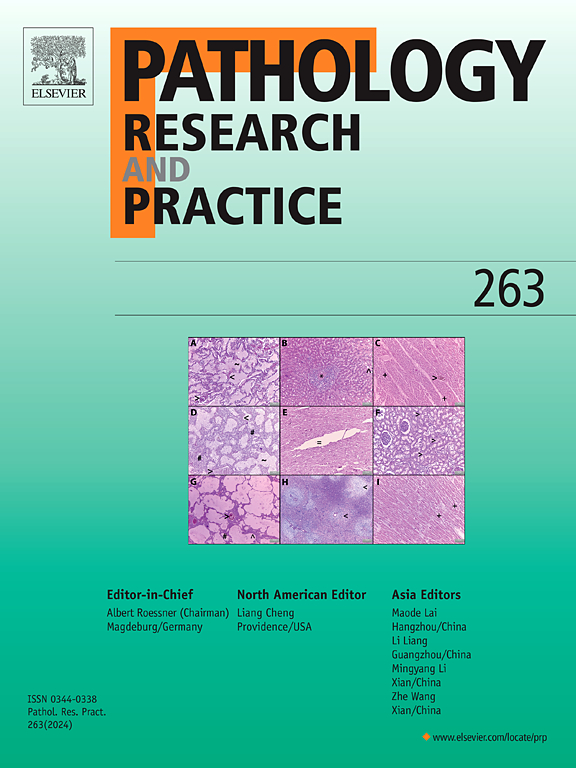CAR T cells in lung cancer: Targeting tumor-associated antigens to revolutionize immunotherapy
IF 2.9
4区 医学
Q2 PATHOLOGY
引用次数: 0
Abstract
Tumor-targeted T cells engineered for targeting and killing tumor cells have revolutionized cancer treatment, specifically in hematologic malignancies, through chimeric antigen receptor (CAR) T cell therapy. However, the migration of this success to lung cancer is challenging due to the tumor microenvironment (TME), antigen heterogeneity, and limitations of T cell infiltration. This review aims to evaluate current strategies addressing these barriers, focusing on the optimization of tumor-associated antigen (TAA) targeting, such as epidermal growth factor receptor (EGFR), mucin-1 (MUC1), and mesothelin (MSLN), which are frequently overexpressed in lung cancer and offer promising targets for CAR T-cell therapy. In this review, we discuss recent progress in CAR T cell engineering, applying enhanced costimulatory molecules, cytokine-secreting CAR T cells, and engineered modifications to improve T cell resilience in immunosuppressive environments. Additionally, this review also evaluates combination therapies of immune checkpoint inhibitors and recently published clinical trials on lung cancer with CAR T cells. We offer insights into the way to optimize CAR T cell therapy for lung cancer by analyzing antigen selection, immune evasion, and the strategies to enhance T cell persistence and tumor infiltration.
肺癌中的CAR - T细胞:靶向肿瘤相关抗原,彻底改变免疫治疗
通过嵌合抗原受体(CAR) T细胞治疗,靶向和杀死肿瘤细胞的肿瘤靶向T细胞已经彻底改变了癌症治疗,特别是在血液系统恶性肿瘤中。然而,由于肿瘤微环境(TME)、抗原异质性和T细胞浸润的局限性,这种成功转移到肺癌是具有挑战性的。本综述旨在评估当前解决这些障碍的策略,重点关注肿瘤相关抗原(TAA)靶向的优化,如表皮生长因子受体(EGFR)、粘蛋白-1 (MUC1)和间皮素(MSLN),它们在肺癌中经常过表达,为CAR - t细胞治疗提供了有希望的靶点。在这篇综述中,我们讨论了CAR - T细胞工程的最新进展,应用增强共刺激分子、细胞因子分泌CAR - T细胞和工程修饰来提高T细胞在免疫抑制环境中的恢复能力。此外,本综述还评估了免疫检查点抑制剂的联合疗法和最近发表的肺癌CAR - T细胞临床试验。我们通过分析抗原选择、免疫逃避以及增强T细胞持久性和肿瘤浸润的策略,为优化CAR - T细胞治疗肺癌的方法提供见解。
本文章由计算机程序翻译,如有差异,请以英文原文为准。
求助全文
约1分钟内获得全文
求助全文
来源期刊
CiteScore
5.00
自引率
3.60%
发文量
405
审稿时长
24 days
期刊介绍:
Pathology, Research and Practice provides accessible coverage of the most recent developments across the entire field of pathology: Reviews focus on recent progress in pathology, while Comments look at interesting current problems and at hypotheses for future developments in pathology. Original Papers present novel findings on all aspects of general, anatomic and molecular pathology. Rapid Communications inform readers on preliminary findings that may be relevant for further studies and need to be communicated quickly. Teaching Cases look at new aspects or special diagnostic problems of diseases and at case reports relevant for the pathologist''s practice.

 求助内容:
求助内容: 应助结果提醒方式:
应助结果提醒方式:


